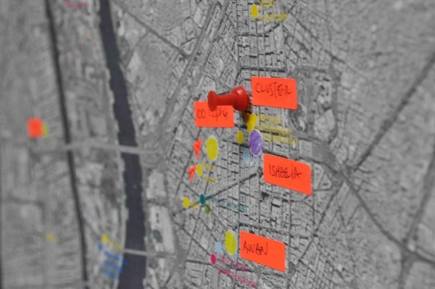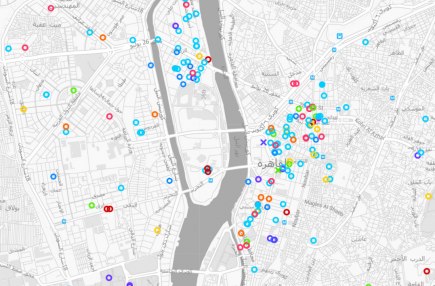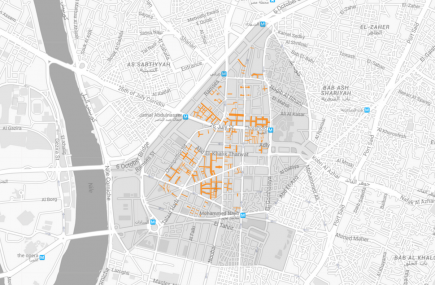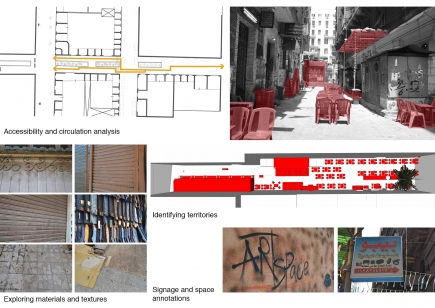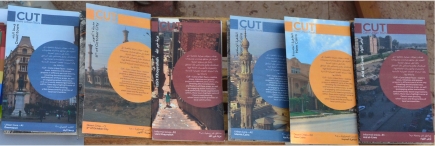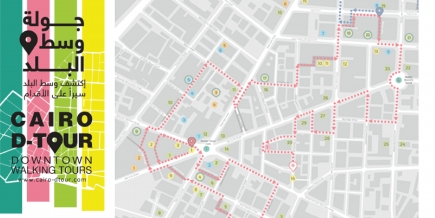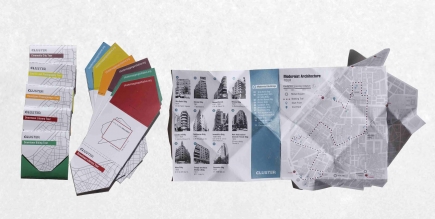| Type: | |
| Areas of Focus: | |
| Activities: | |
| Resources: | |
| Address: | 2nd. Floor, 10 Darab El-Labbana st., al-Khalifa. in front of Al-Refai mosque, Cairo, Egypt |
| Date of Establishment: | 2013 |
| Website: | www.ci-las.org/ www.facebook.com/cilasian/timeline |
| Email: | karim@ci-las.org |
Overview
Whoever has obtained at least a high school diploma is offered the opportunity to pursue a yearlong study programme in the spirit of the liberal arts at CILAS. People from all walks of life, ages and backgrounds are invited to apply. Note that CILAS' mission is to enable access to liberal arts education. In other words, CILAS seeks to make a liberal arts education of remarkable quality affordable to anyone interested.
In addition to the yearlong study programme, CILAS recognises the value of its learning environment, method and courses independently. For this reason CILAS welcomes non-degree-seeking students. Non-degree seekers are often full-time employees who are interested in a particular core or thematic course. Experience has shown that they enrich classroom discussions by citing examples from their work.
Through flexible scheduling and relative study fees CILAS recruits students from various socio-economic backgrounds. CILAS offers classes both in the morning and in the late afternoon at a cost that is sensitive to financial ability. In sum, anyone with the minimum formal requirement of a high school diploma and an easiness to communicate both in writing and speaking in English is eligible to apply to CILAS' study programme.
Twenty-four students are admitted to the yearlong study programme. High school attendance is used as an indicator of the applicant's background. In other words, CILAS seeks to admit up to six students with a refugee background, half a dozen students who are graduates of an Egyptian government high school (including experimental schools), up to six students from private high schools and up to six students from international schools or who come from abroad.
Four teachers coordinate the respective fields of study, facilitate the learning process and help direct CILAS. They are recruited based on academic merit, pedagogic experience, socio-cultural understanding and communicative facility. They are required to hold at least a Master's degree from a renowned university in their respective field of study. Moreover, they are required to have taught before, demonstrate understanding of 'development work' and communicate well.
Programme
Students are challenged to complete coursework in the fields of Arts, Culture, Social Sciences and Natural Sciences. A (1) Core Curriculum that incorporates skills training provides students with an intellectual foundation. Students complete (2) Thematic Coursework that addresses local development challenges as well as twenty-five hours of (3) Community Service and apply their acquired competencies during (4) Capstone Projects.
First trimester: September through December
(1) The Core Curriculum consists of four core courses required of all students at CILAS. Core courses introduce students to the respective fields of study on offer at CILAS. Fields of study are inter-disciplinary in nature and present students to foundational concepts, prominent thinkers and ongoing debates. Moreover, the Core Curriculum incorporates skills training with an emphasis on writing, argumentation, presentation and debating skills.
Second and third trimester: January through June
(2) Thematic Coursework and Community Service extend over trimesters two and three. Thematic Coursework comprises follow-up courses to the core courses. Thematic courses address local development challenges by building upon concepts, thinkers and debates introduced during the respective core courses. They progress from theory to practice and from the global scale to the local scale while training students to think comparatively and develop spatial sensitivity.
(3) Community Service is the third component of the programme and requires students to complete twenty-five hours of Community Service. Students may choose between three Community Service tracks. Track one requires students to conduct research and produce a research paper; track two allows students to facilitate learning at St. Andrew's Refugee Services while track three serves CILAS' internal community.
Second and third trimester: March and June, respectively
(4) At the end of trimesters two and three students complete one-month long Capstone Projects. In trimester two students complete an internal Capstone Project, while in trimester three they complete an external Capstone Project. For the internal one students are given the opportunity to create and contribute to CILAS Online Journal or organise and host CILAS Conference. The journal and the conference topic both lie at the intersection of two thematic courses.
The external Capstone Project takes place at the end of the study programme and as such represents the culmination of the study programme. For the external Capstone Project students are assigned to one of two projects. They either complete CILAS Think Tank or CILAS Documentary Film. During the former students create a multi-layered digital map aimed at promoting the local economic development of an area. During the latter students shoot a short documentary film.
Method
As its core method of instruction CILAS employs Discussion Based Learning (DBL) which relies on students' class participation and collaboration. Small groups with a student to teacher ratio of six to one employ DBL. Topics are explored during so-called Pre- and Post-Discussions, and are based on written or audio-visual prompts. For each topic a student is appointed as discussion leader. Pre-Discussions follow a five-step process intended as guidelines for student-led discussions.
